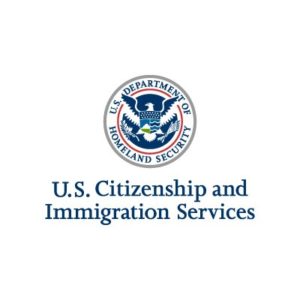 A new lawsuit and economic research have exposed problems with the Department of Labor’s (DOL) new H-1B wage rule. The lawsuit seeks a preliminary and permanent injunction against the new rule, which analysts have concluded was designed to price out of the U.S. labor market H-1B visa holders and employment-based immigrants by raising the required minimum wage to employ them. The research explains why the rule is likely unlawful, harmful to the U.S. economy and will make it difficult for international students to be employed in the United States after graduation.
A new lawsuit and economic research have exposed problems with the Department of Labor’s (DOL) new H-1B wage rule. The lawsuit seeks a preliminary and permanent injunction against the new rule, which analysts have concluded was designed to price out of the U.S. labor market H-1B visa holders and employment-based immigrants by raising the required minimum wage to employ them. The research explains why the rule is likely unlawful, harmful to the U.S. economy and will make it difficult for international students to be employed in the United States after graduation.
“On October 8, 2020, without providing prior notice and without affording plaintiffs or the general public an opportunity to comment, the Department of Labor dramatically altered the manner in which it calculates prevailing wage rates for the H-1B program,” according to a complaint filed on October 16, 2020, by the Wasden Banias law firm on behalf of ITServe Alliance, Dots Technologies, Iflowsoft Solutions, Kolla Soft, NAM Info, Precision Technologies, Smart Works and Zenith Services in the U.S. District Court for the District of New Jersey.
“Plaintiffs bring this civil action challenging the Department of Labor’s decision to set dramatically higher wage rates without following the notice and comment rulemaking procedures required under the Administrative Procedure Act,” reads the complaint. “Plaintiffs also challenge the agency’s new wage rates as a violation of the Immigration and Nationality Act, as amended, because the new wage rates are set under a novel standard that conflicts with the governing statutory criteria. The Department of Labor’s new wage rule is also arbitrary and capricious because the agency relied on outdated, incorrect, or limited empirical data, failed to consider readily available, relevant data and empirical studies, and engaged in reasoning that conflicts with basic economic theory.”
Visit Forbes for full article.

 U.S. Citizenship and Immigration Services (USCIS) today announced it will increase fees for premium processing, effective Oct. 19, as required by the
U.S. Citizenship and Immigration Services (USCIS) today announced it will increase fees for premium processing, effective Oct. 19, as required by the  WASHINGTON—The Trump administration announced an overhaul of the H-1B visa program for high-skilled foreign workers that will require employers to pay H-1B workers significantly higher wages, narrow the types of degrees that could qualify an applicant and shorten the length of visas for certain contract workers.
WASHINGTON—The Trump administration announced an overhaul of the H-1B visa program for high-skilled foreign workers that will require employers to pay H-1B workers significantly higher wages, narrow the types of degrees that could qualify an applicant and shorten the length of visas for certain contract workers.